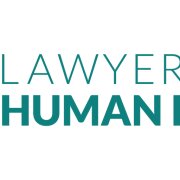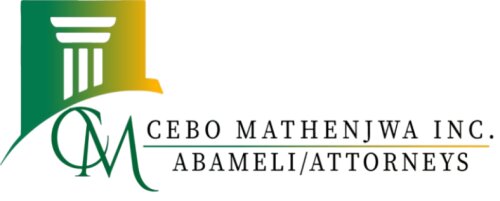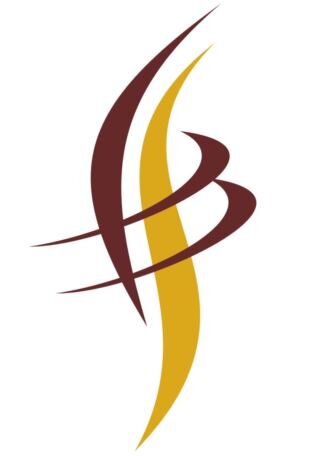Best Disability Lawyers in Johannesburg
Share your needs with us, get contacted by law firms.
Free. Takes 2 min.
List of the best lawyers in Johannesburg, South Africa
About Disability Law in Johannesburg, South Africa
Disability law in Johannesburg, South Africa, is designed to protect the rights and dignity of individuals with disabilities. This involves ensuring equal access to opportunities and resources, preventing discrimination in employment, education, and public services, and advocating for accommodations and support services necessary for disabled individuals to lead independent and fulfilling lives. Johannesburg, as the economic hub of South Africa, is home to various organizations and legal entities dedicated to upholding these rights and providing support to those navigating the complexities of disability law.
Why You May Need a Lawyer
There are several situations where individuals may require legal assistance related to disability. These include cases where a person's rights are violated through discrimination in the workplace, challenges in accessing public services or facilities due to inadequate accommodations, disputes regarding social benefits and entitlements, or when seeking compensation for disability-related grievances. Legal expertise can help navigate the legislative framework, ensure compliance, and advocate effectively for a person's rights and needs.
Local Laws Overview
Key aspects of local disability laws in Johannesburg include the Employment Equity Act, which prohibits unfair discrimination against disabled individuals in all aspects of employment. The Promotion of Equality and Prevention of Unfair Discrimination Act ensures equal protection and benefit of the law. Furthermore, the South African Constitution enshrines the rights to equality, dignity, and non-discrimination, all of which are critical for protecting individuals with disabilities. The Code of Good Practice on the Employment of People with Disabilities provides specific guidance for employers to implement reasonable accommodations in the workplace.
Frequently Asked Questions
What rights do people with disabilities have in Johannesburg?
Individuals with disabilities have the right to equal treatment and protection under the law, access to public facilities and services, and non-discrimination in employment and education.
Can a person with disabilities be denied a job because of their condition?
No, under South African law, denying a person a job based solely on disability is considered unfair discrimination, unless the disability prevents performance of essential job functions and no reasonable accommodation can be made.
What should I do if I face discrimination at work due to my disability?
If you experience discrimination, you can lodge a complaint with the Commission for Conciliation, Mediation and Arbitration (CCMA) or seek legal advice to pursue action under the relevant employment laws.
Are there grants available for people with disabilities?
Yes, the South African Social Security Agency (SASSA) provides various grants, including disability grants for those who meet certain medical and financial criteria.
How can public places be legally required to be accessible?
Under the National Building Regulations, public buildings must adhere to specifications ensuring accessibility for people with disabilities. Failure to comply can result in penalties and legal challenges.
What is "reasonable accommodation" in the context of employment?
Reasonable accommodation refers to necessary and appropriate adjustments or modifications to the work environment that enable an individual with a disability to perform their job duties.
Can children with disabilities access mainstream education?
Yes, children with disabilities have the right to inclusive education. Schools are required to provide support and accommodations to facilitate their learning and participation.
Who enforces disability rights laws in Johannesburg?
Various bodies, including the South African Human Rights Commission, Labour Courts, and Equality Courts, are responsible for enforcing disability rights laws.
How can I apply for a disability parking permit?
Disability parking permits can be obtained through the local municipality. Applicants need to provide medical certification and details about their mobility impairment.
What legal recourse is available if a business refuses service because of a disability?
Refusing service due to disability is discriminatory and can be challenged via the Equality Court or through alternative dispute resolution mechanisms.
Additional Resources
There are several resources available to assist individuals seeking legal advice on disability matters in Johannesburg. These include:
- The South African Human Rights Commission - provides resources and support for human rights-related matters.
- Legal Aid South Africa - offers pro bono legal assistance to those who qualify based on income.
- Disability Rights South Africa - an advocacy organization focusing on disability rights and support.
- Commission for Conciliation, Mediation and Arbitration (CCMA) - helps resolve workplace disputes, including discrimination claims.
- South African Social Security Agency (SASSA) - provides information on social grants for people with disabilities.
Next Steps
If you require legal assistance regarding disability issues, consider the following steps:
1. Gather documentation: Compile any relevant documents and records related to your situation, such as employment contracts, medical reports, and correspondence.
2. Seek advice: Contact a qualified lawyer who specializes in disability law to discuss your case. Legal Aid South Africa may offer assistance if you meet eligibility criteria.
3. Explore alternative dispute resolution: Consider mediation or arbitration to resolve disputes without a lengthy court process.
4. File a complaint: If necessary, file a formal complaint with the appropriate legal or governmental body, such as the CCMA or an Equality Court.
Lawzana helps you find the best lawyers and law firms in Johannesburg through a curated and pre-screened list of qualified legal professionals. Our platform offers rankings and detailed profiles of attorneys and law firms, allowing you to compare based on practice areas, including Disability, experience, and client feedback.
Each profile includes a description of the firm's areas of practice, client reviews, team members and partners, year of establishment, spoken languages, office locations, contact information, social media presence, and any published articles or resources. Most firms on our platform speak English and are experienced in both local and international legal matters.
Get a quote from top-rated law firms in Johannesburg, South Africa — quickly, securely, and without unnecessary hassle.
Disclaimer:
The information provided on this page is for general informational purposes only and does not constitute legal advice. While we strive to ensure the accuracy and relevance of the content, legal information may change over time, and interpretations of the law can vary. You should always consult with a qualified legal professional for advice specific to your situation.
We disclaim all liability for actions taken or not taken based on the content of this page. If you believe any information is incorrect or outdated, please contact us, and we will review and update it where appropriate.

















